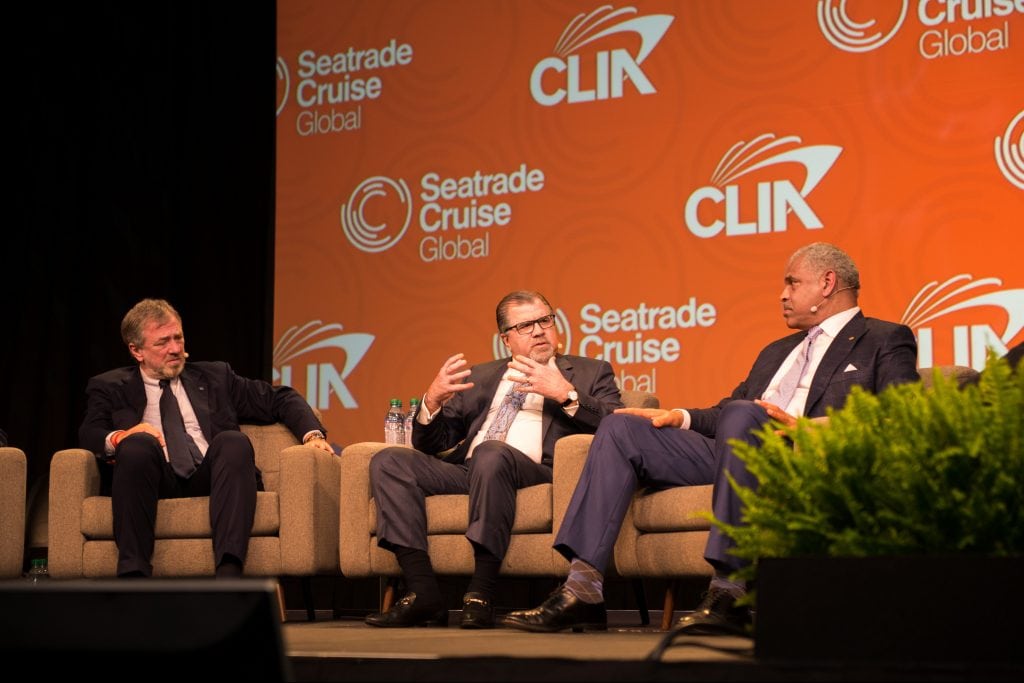Cruise CEOs Want to Ease Overtourism Without Taking Blame

Skift Take
As much as cruise lines don't want to take responsibility for contributing to overtourism, there's no denying that they flood destinations with thousands of visitors in a short time. The fact that they are discussing ways to do that more thoughtfully is a good step.
In a year when 27 million people are expected to take a cruise and billions of dollars worth of ships are on order, the CEOs of the world's largest operators have a new concern: pushback from destinations wary of too many visitors.
During a discussion about the state of the cruise industry at the annual Seatrade Cruise Global conference in Fort Lauderdale Tuesday, executives tackled the question of overtourism — while being quick to point out that they don't consider themselves offenders.
Arnold Donald, CEO of cruise giant Carnival Corp., said the industry has to "listen with empathy for the issue of what some people call overtourism, not necessarily driven by cruise companies."
"But," he added, "the fact [is] that we're a very visible symbol for it."
Destin
